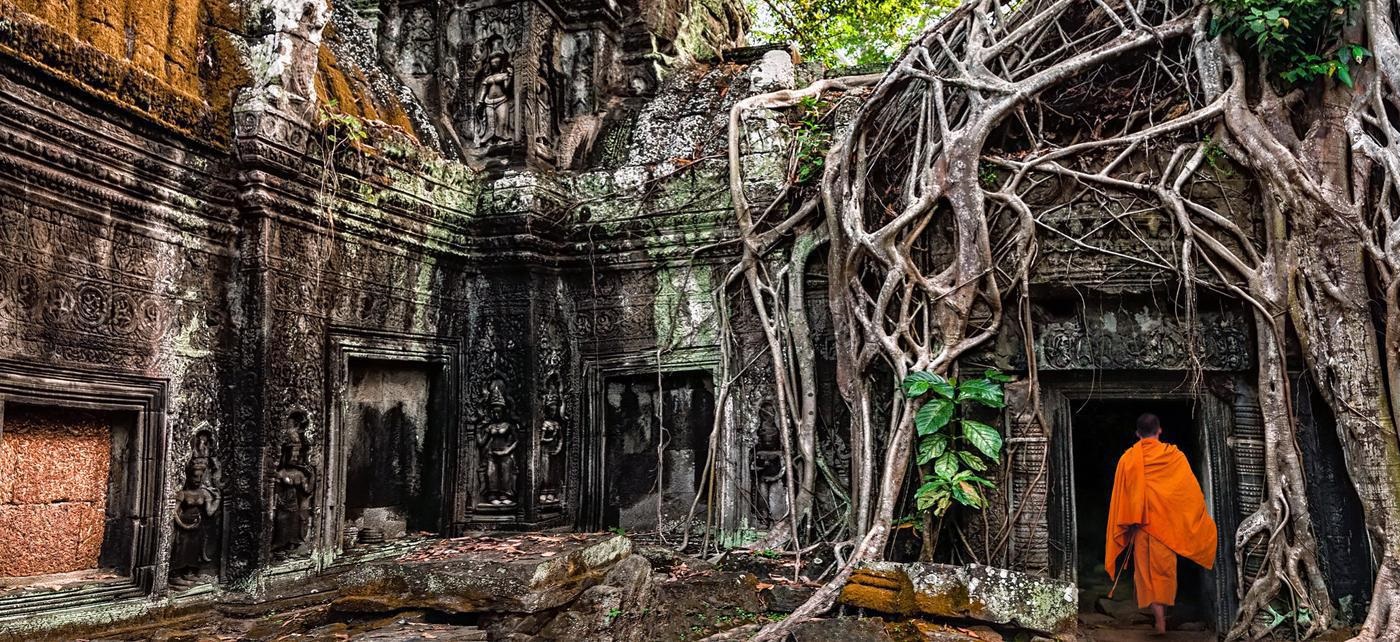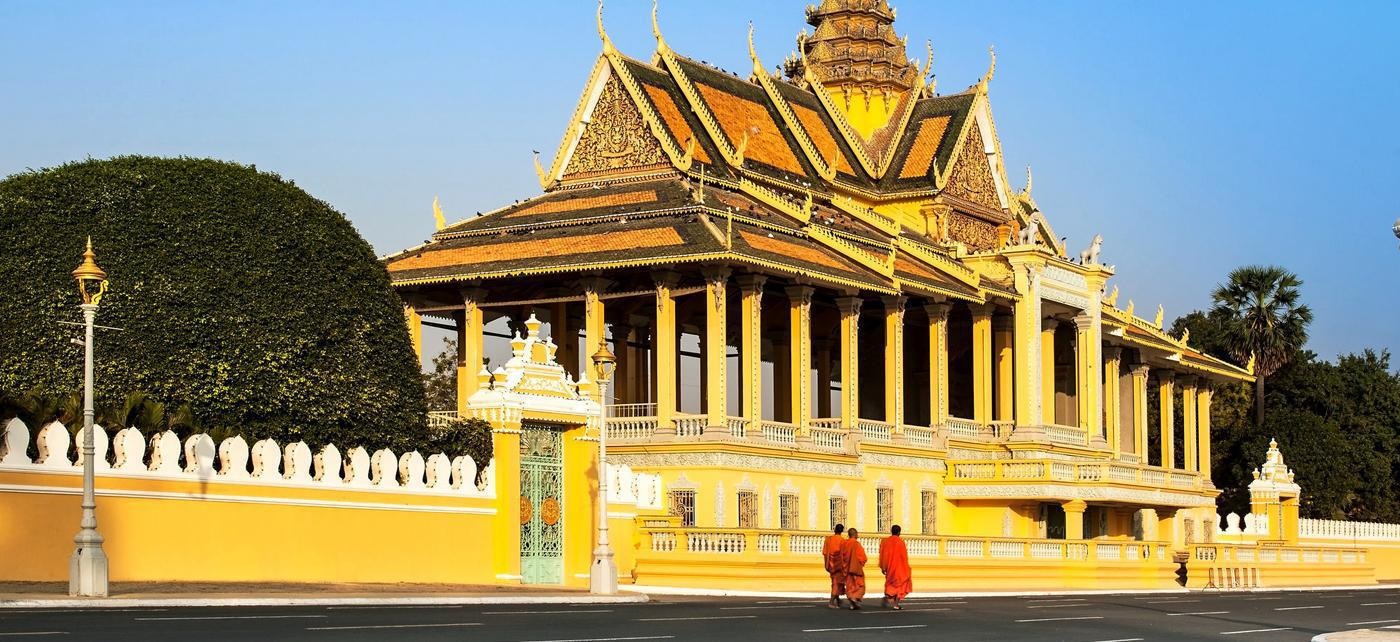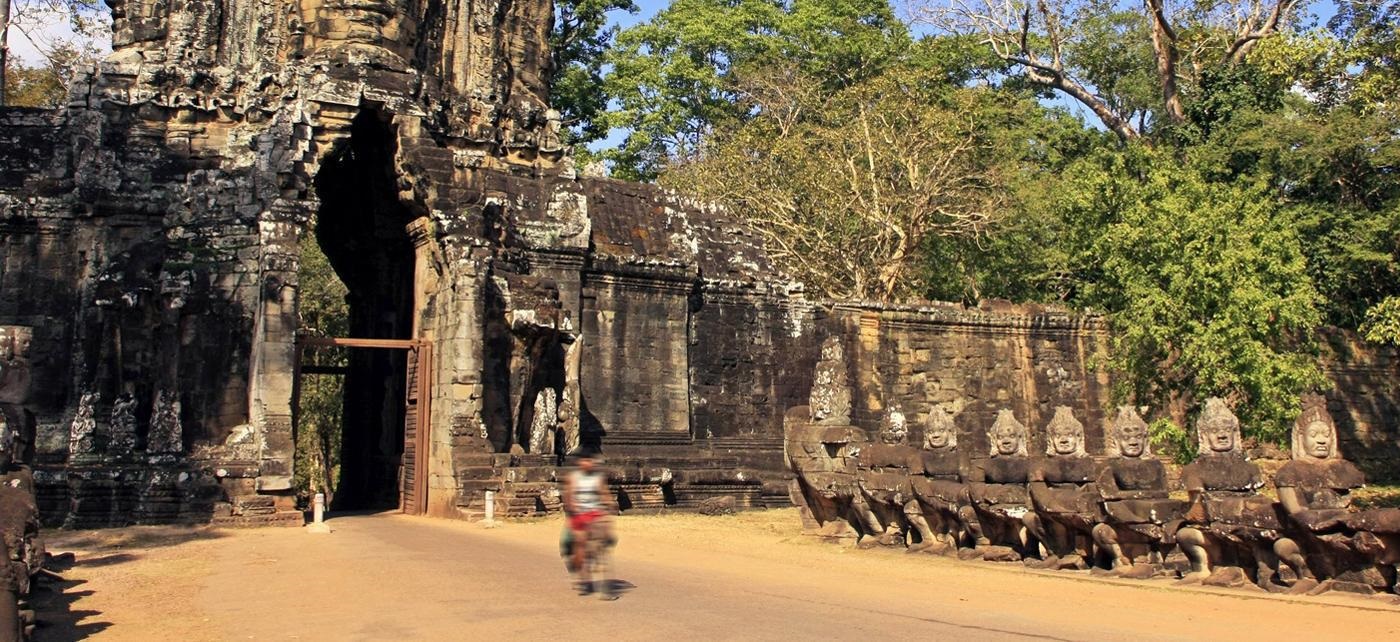Cambodia, officially known as the Kingdom of Cambodia, is a country located in the southern portion of the Indochina Peninsula in Southeast Asia. With a total landmass of 181,035 square kilometres, it is bordered by Thailand to the northwest, Laos to the northeast, Vietnam to the east, and the Gulf of Thailand to the southwest.
With a population of over 14.8 million, Cambodia is the 69th most populous country in the world. The official religion is Theravada Buddhism which is practiced by around 92% of the Cambodian population. The country minority groups include Vietnamese, Chinese, Chams and 30 various hill tribes. The capital and largest city is Phnom Penh, the political, economical, cultural center of Cambodia. The kingdom is a constitutional monarchy with Norodom Sihamoni an elected monarch chosen by the Royal Throne Council as head of state. The head of government is Hun Sen who is currently the longest serving leader in South East Asia and has ruled Cambodia for over 25 years.
During the 3rd, 4th, and 5th centuries, the Indianised states of Funan and Chenla coalesced in present-day Cambodia and southwestern Vietnam. For more than 2,000 years, Cambodia absorbed influences from India, passing them on to other Southeast Asian civilizations that are now Thailand, and Laos. The Khmer Empire flourished in the area from the 9th to the 13th centuries. Around the 13th century, Theravada Buddhism was introduced to the area through monks from Sri Lanka. From then on, Theravada Buddhism grew and eventually became the most popular religion.
National politics in Cambodia take place within the framework of the nation's constitution of 1993. The government is a constitutional monarchy operated as a parliamentary representative democracy. The Prime Minister of Cambodia, an office held by Hun Sen since 1985, is the head of government, while the King of Cambodia (currently Norodom Sihamoni) is the head of state. The prime minister is appointed by the king, on the advice and with the approval of the National Assembly.
Cambodia has a wide variety of plants and animals. There are 212 mammal species, 536 bird species, 240 reptile species, 850 freshwater fish species (Tonle Sap Lake area), and 435 marine fish species. Much of this biodiversity is contained around the Tonle Sap Lake and the surrounding biosphere. The Tonle Sap Biosphere Reserve is a unique ecological phenomenon surrounding the Tonle Sap. It encompasses the lake and nine provinces: Kampong Thom, Siem Reap, Battambang, Pursat, Kampong Chhnang, Banteay Meanchey, Pailin, Oddar Meanchey and Preah Vihear. In 1997, it was successfully nominated as a UNESCO Biosphere Reserve. Other key habitats include the dry forest of Mondolkiri and Ratanakiri provinces and the Cardamom Mountains ecosystem, including Bokor National Park, Botum-Sakor National Park, and the Phnom Aural and Phnom Samkos wildlife sanctuaries.


